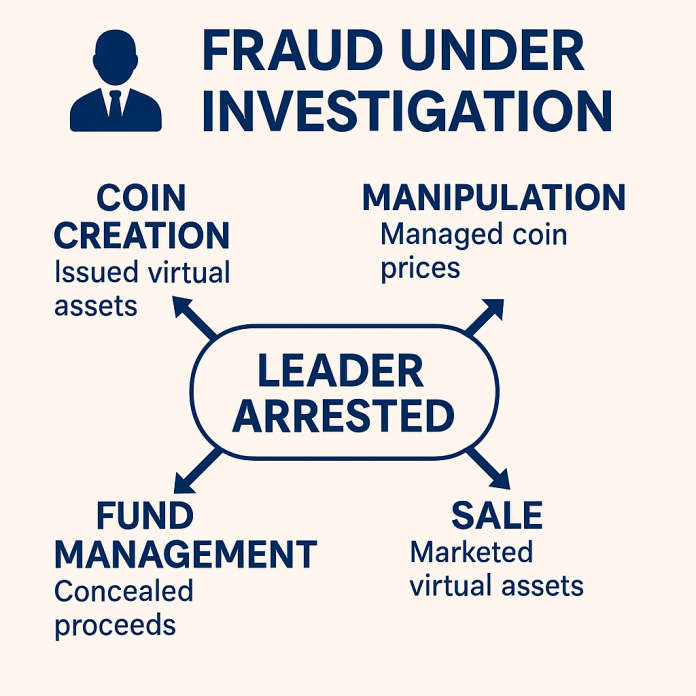
The key figure behind a massive ₩320 billion cryptocurrency investment scam has been apprehended by police after fleeing abroad for nearly two years. The criminal organization had posed as a group of investment advisors, deceiving thousands of victims into fake crypto investments while systematically siphoning off their funds.
According to investigators, the organization defrauded over 15,000 victims by falsely promoting 28 types of cryptocurrencies as investment opportunities, collecting a total of ₩325.6 billion. Led by a prominent YouTuber, the group established a parent company, six affiliated pseudo-advisory firms, and ten separate sales subsidiaries. These units operated in a coordinated manner, dividing responsibilities such as market manipulation, fund laundering, sales, data management, and customer acquisition.
The arrested suspect, referred to as Mr. A, acted as the general coordinator of the operation. He worked closely with the main ringleader to oversee fund distribution and manage the organization’s operations. Authorities confirmed that Mr. A played a direct role in handling over ₩37.8 billion of the stolen funds, particularly by overseeing the customer database and planning marketing strategies.
As police began closing in on the network, Mr. A fled to Japan, then moved through Malaysia to Australia. Authorities responded by invalidating his passport and launching an international manhunt in coordination with Interpol. Ultimately, Mr. A agreed to return to Korea, where he was arrested immediately upon arrival.
During the investigation, police successfully seized ₩2.2 billion worth of hidden Bitcoin and requested the pre-trial forfeiture and seizure of an additional ₩47.8 billion in criminal proceeds. A total of 215 individuals connected to the scheme, including the primary ringleader, have been apprehended, with 12 currently in detention.
Police emphasized that no economic criminal can escape justice, even if they flee overseas. They also reaffirmed their commitment to recovering stolen assets and enhancing preventive measures to protect investors from similar cryptocurrency-related frauds in the future.






